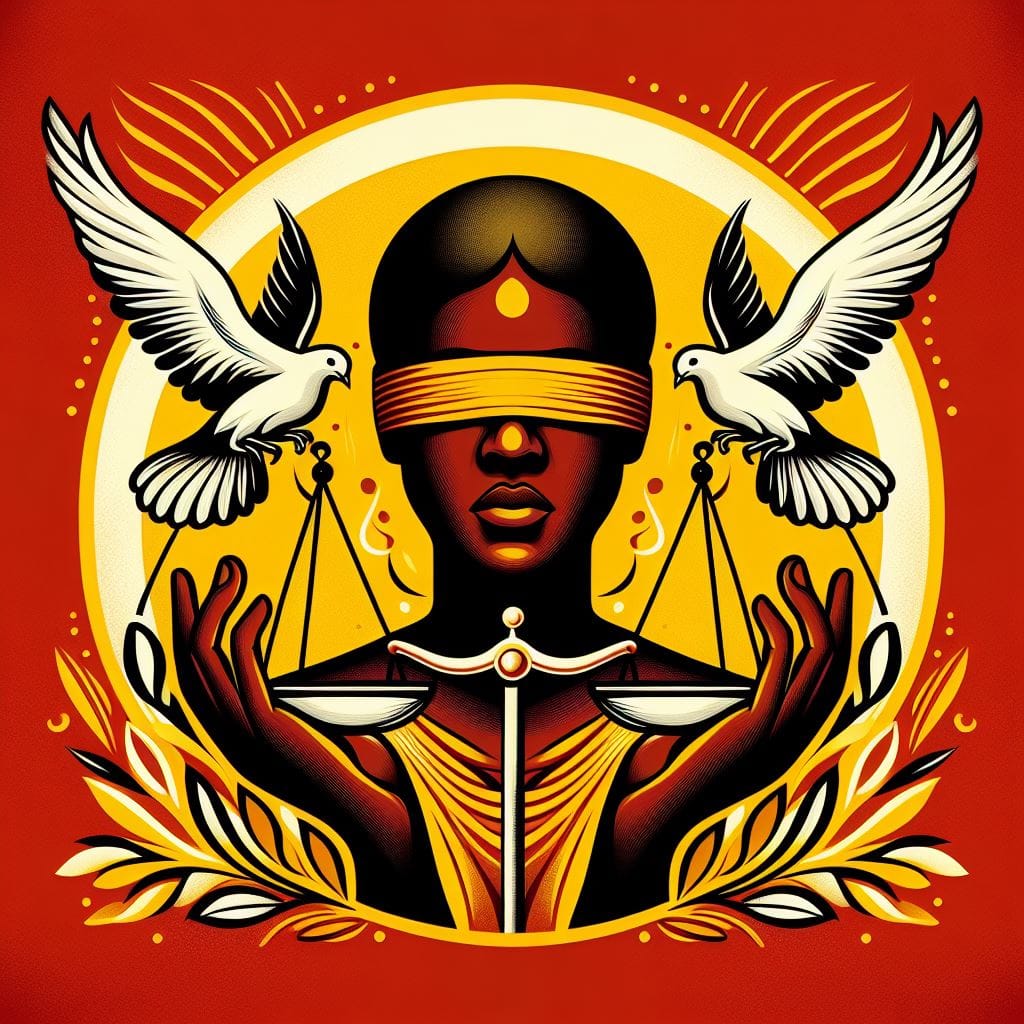A View Toward UpLift: Racism’s Shadow Lingers in American Media and Justice System
UpLift Chronicles' editorial board reflects on the lingering shadow of racism in American media and criminal justice and calls for community dialogue.

A View Toward UpLift reflects the opinions of the UpLift Chronicles Editorial Board. Our newspaper’s contributors hold diverse perspectives and viewpoints. This opinion column aims to discuss news and issues and pose questions that are relevant to local communities as well as our overarching readership.
In the labyrinthine narrative of America's justice system, the interplay of race and legal proceedings casts a long, ambiguous shadow over the lives of high-profile African Americans. When members of this community face accusations, the ensuing media frenzy often blurs the line between individual actions and collective identity, deepening the scars of systemic racism. Not confined to the legal system, this is a cultural crisis wherein past prejudice colors present perspectives.
Systemic racism within the American justice system is not just a statistical reality; it is a multi-dimensional problem that influences how people of color are prosecuted and sentenced. This complex, nuanced issue is mirrored by the struggle to achieve fair, balanced media portrayals of Black, Latine, Indigenous, and other minority groups' interactions with law enforcement. These conversations are difficult and often divisive but remain critical and essential for cultural transformation.
The polarizing effect of such media coverage was starkly highlighted by the recent death of O.J. Simpson, a figure whose legal battles became a cultural spectacle. Simpson, a celebrated African-American athlete and actor, was at the center of the first widely televised police chase and a highly publicized trial. Though acquitted, his case remains a benchmark for discussing racial bias in media reporting and public perception.
Simpson's story may be an outlier, but it reflects broader societal questions, including those raised by ongoing legal issues faced by Sheryl Williams Stapleton, a longtime former state legislator. Witnessing Stapleton’s transition from respected lawmaker to accused criminal forces us to ask questions.
How should society view individuals who are accused of crimes? Are they only to be defined by their alleged missteps?
Stapleton, who served in the New Mexico House of Representatives from 1995 to 2021, was a prolific legislator. She sponsored or co-sponsored over 370 bills, including significant legislation like the Black Education Act, which passed into law in 2021. That legacy now risks being overshadowed by accusations of funneling funds from Albuquerque Public Schools to businesses and charities she was affiliated with. These charges, both state and federal, carry severe penalties and also test our commitment to the principle of “'innocent until proven guilty.”
In March 2024, the gravity of those federal charges led Gov. Michelle Lujan Grisham to order the removal of Stapleton’s name from the African American Performing Arts Center, a move that highlights the preemptive judgment often passed in the court of public opinion—especially when race and high-profile status intersect. This reaction begs the question of whether Stapleton’s race and public stature have predisposed her to harsher judgment, a scenario that’s not unfamiliar within the historical context of American justice.
This brings us to a critical juncture in our discourse. Systemic racism can lead individuals to view people of color not as individuals with unique identities but as monolith representatives of their race, burdening them with collective judgments and stereotypes. When high-profile African Americans face accusations, their singular stories are often lost in a sea of generalized narratives that fail to recognize personal achievements, specific challenges or individual choices.
New Mexico Black Leadership Council and UpLift Chronicles are actively seeking to foster a community discourse that can move us beyond these stereotypes.
We encourage public input on how we, as a community, can maintain a balance between accountability and grace, ensure people are not solely defined by their worst acts, and question whether treatment within the justice system and by the media is equitable.
Redefining Justice: A Call for Community Engagement
As we reflect on these narratives, we must challenge ourselves and our institutions to rise above the historical confines of racial bias and afford every individual the dignity of being seen as more than simply the sum of their most infamous actions. The journey towards equitable treatment in the American justice system and within media representation remains long and fraught with challenges but this is a necessary path to approach the ideals of equality and justice for all. Join the conversation, and let your voice be a beacon of change. Together, we can ensure that our collective actions today pave the way for a fairer tomorrow. Email your thoughts to info@nmblc.org to inform future coverage.
A View Toward UpLift reflects the opinions of the UpLift Chronicles Editorial Board. Our newspaper’s contributors hold diverse perspectives and viewpoints. This opinion column aims to discuss news and issues and pose questions that are relevant to local communities as well as our overarching readership.
